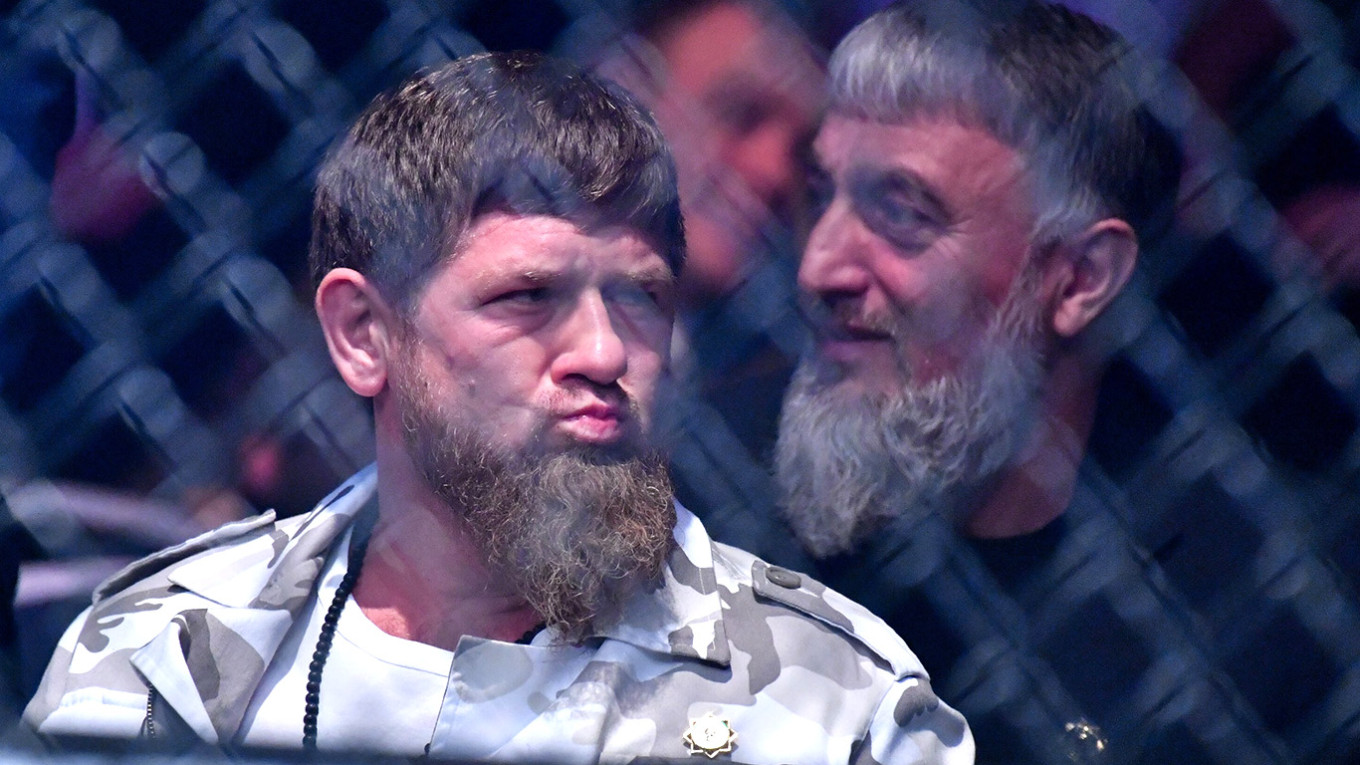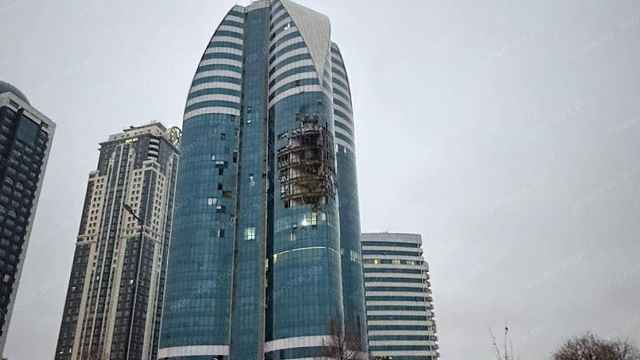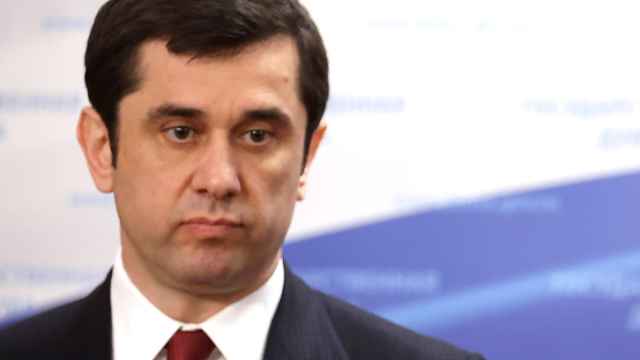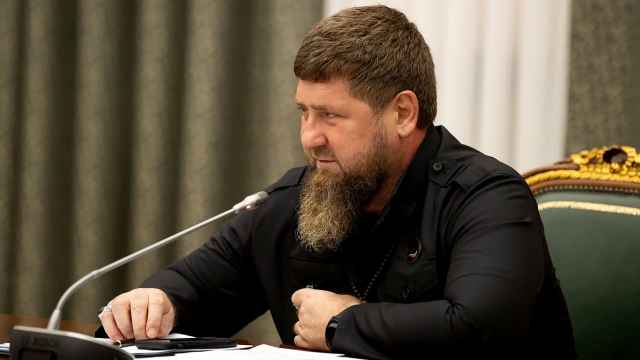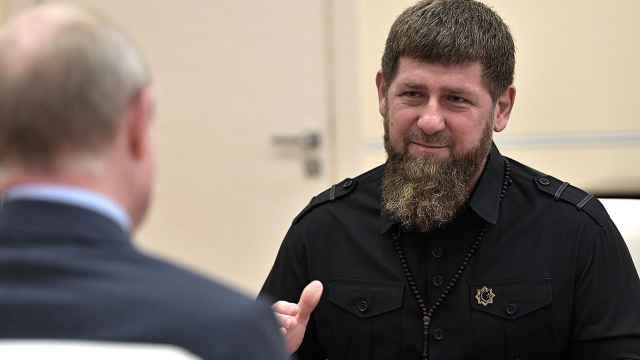Chechen leader Ramzan Kadyrov has declared a “blood feud” against three federal-level lawmakers hailing from the neighboring republics of Dagestan and Ingushetia.
The statement was yet another twist in the months-long dispute between Tatiana Kim, the CEO of Russia’s largest online retailer Wildberries, and her estranged husband Vladislav Bakalchuk.
The Moscow Times spoke to prominent analysts from the three republics embroiled in the conflict and a North Caucasus scholar about Kadyrov’s move and what it might mean for the future of this volatile region.
What happened?
This summer, Kadyrov vowed to help Vladislav Bakalchuk “to return” his wife after she filed for divorce and to block Wildberries’ planned merger with the Russ Group, a much smaller outdoor advertising firm linked to Dagestan-born oligarch and politician Suleiman Kerimov.
The business standoff escalated in September when Bakalchuk led a group of men to Wildberries’ Moscow headquarters and allegedly tried to force their way into the building. The ensuing shootout resulted in the death of two Wildberries security guards from Ingushetia and multiple felony charges against several ethnic Chechens involved in the incident.
Bakalchuk was arrested shortly afterward and charged with multiple criminal offenses, including murder, attempted murder, vigilantism and an attempt on the life of a law enforcement officer.
On Sept. 20, thousands gathered near Ingushetia’s Magas airport to pay last respects to the two security guards killed in Moscow when their bodies were repatriated to the republic — a gesture that Kadyrov dubbed as “rallies” in a speech last week.
In the same speech, Kadyrov alleged that Kerimov “took” Wildberries from Kim and ordered Kadyrov’s assassination, adding that he has witnesses able to attest to these claims.
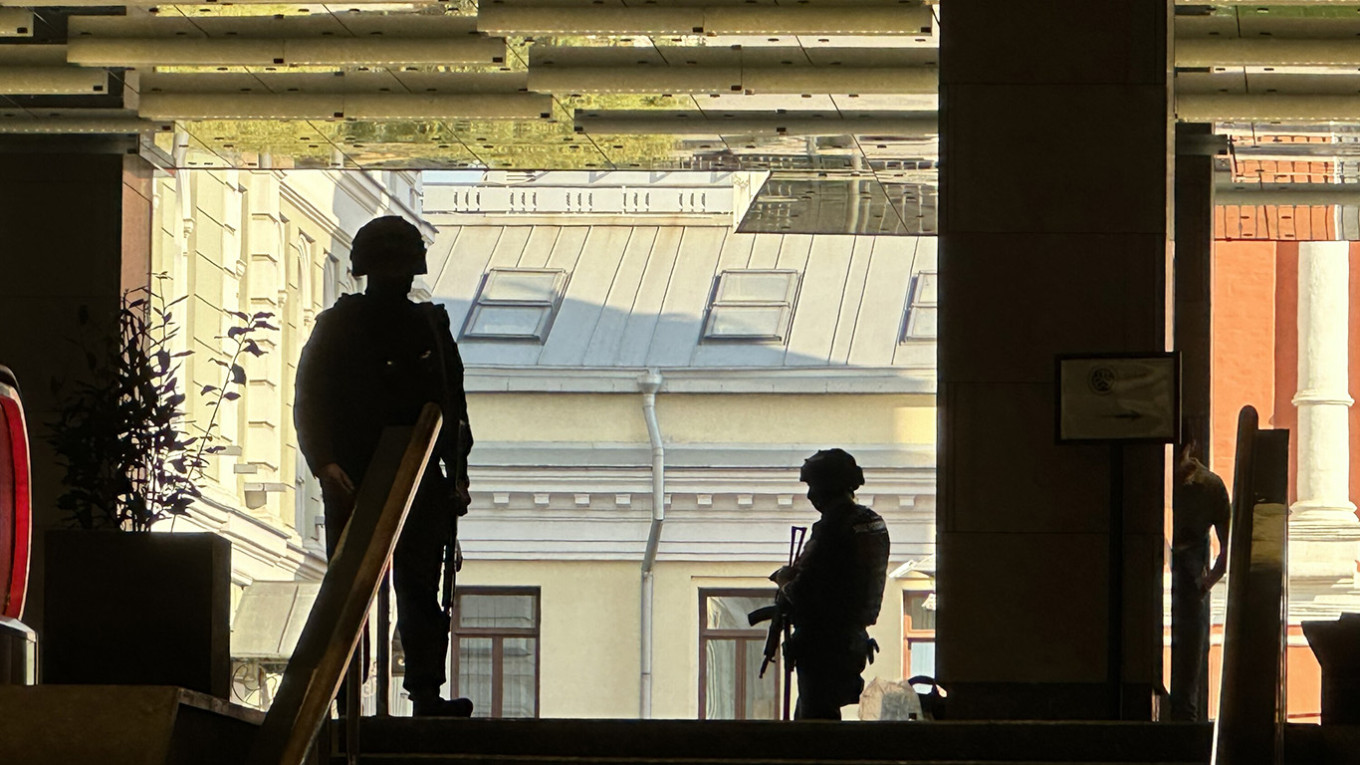
Chechnya’s leader also claimed that Kerimov conspired with Dagestan-born State Duma deputy Rizvan Kurbanov and Ingushetia-born deputy Bekhan Barakhoyev, though the latter publicly refuted Kadyrov’s claims on Tuesday.
"I am a Caucasian. I am a Chechen. I [always] return my own home," independent Ingush news outlet Fortanga cited Kadyrov as saying.
What is a ‘blood feud’? Is it still practiced in the Caucasus?
The blood feud is an ancient custom practiced by pre-state, clan-based communal societies in the North Caucasus as a mechanism for protecting the honor, dignity or property of the clan.
Rules and principles of engaging in a blood feud differ from one North Caucasus nation to another, but they traditionally involve only men of legal age and center around the duty to avenge a murder of one’s relative by killing the offender or his relatives.
The tradition of blood feuds “stems from the principle of ‘an eye for an eye, a tooth for a tooth, and blood for blood’,” explained Chechen human rights lawyer and prominent Kadyrov critic Abubakar Yangulbaev. “It was meant to serve as a system of checks and balances in a society that lived by principles of customary law.”
Today, the custom “is rarely encountered in practice, as it is a criminal act in the Caucasus — likely not more frequently than revenge-motivated killings in non-Caucasian regions,” said a political commentator from Dagestan who requested anonymity due to safety concerns.
“The North Caucasus has a rich tradition of reconciliation, with regional figures specializing in various forms of mediation. These mediators actively intervene when there is a threat of [blood feud] incidents,” they added.
Experts who spoke with The Moscow Times also noted that Kadyrov’s most recent declaration of vendetta falls outside of traditional norms.
“According to custom…it is the relatives of the deceased Ingush guards who are expected to declare blood feud against the other party — those directly responsible for their killings,” explained Isabella Evloeva, an Ingush journalist and the founder of Fortanga.
But for Kadyrov, the misinterpreted ancient tradition has long become “something like a nuclear weapon,” a last-resort tactic used to threaten rivals and exert his social and political authority, according to Yangulbaev.
Is all of this just about Wildberries?
“Ultimately, it’s about Kadyrov’s reputation and legitimacy, or lack thereof,” said North Caucasus analyst Harold Chambers. “Losing in the Wildberries conflict means losing his reputation as a fixer, and thus what little standing he has in Russia’s business world.”
Chechen lawyer Yangulbaev noted that Kadyrov’s connection with Bakalchuk “came as a surprise to everyone” in the republic, adding that Chechnya’s leader is unlikely to have had any prior business involvement with Wildberries.
“I assume that Bakalchuk reached out to Kadyrov because Tatiana [Kim] already had a patron in the face of Suleiman Kerimov…Naturally, Bakalchuk must have promised Kadyrov some percentage or share [in Wildberries] in return for helping to win in the dispute. That’s how the mafia operates,” said Yangulbaev.
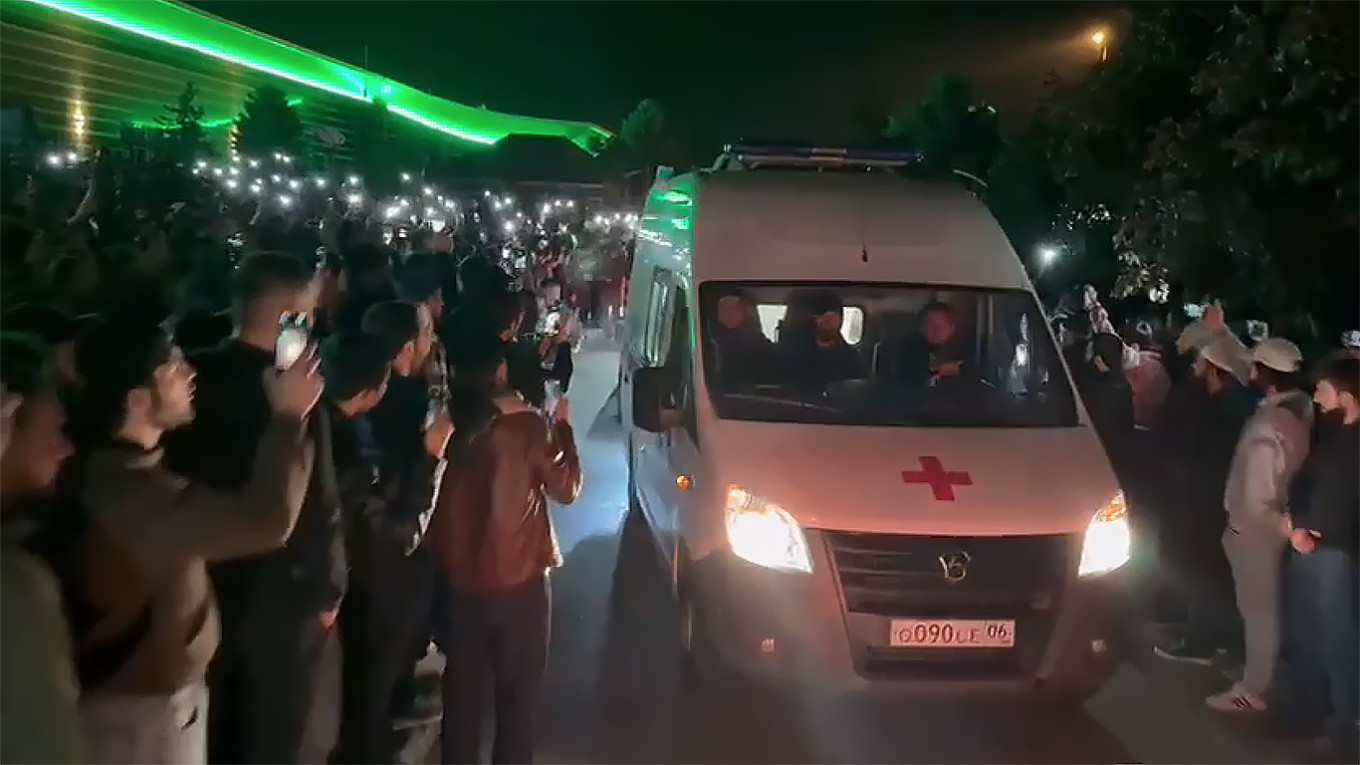
Observers who spoke with The Moscow Times agreed that emerging victorious from the Wildberries dispute would also be an important symbolic win that could prove that Kadyrov still holds authority and a firm grip over Chechnya and the other North Caucasus republics.
But resorting to the declaration of a blood feud might just prove that the Chechen leader's political power is waning.
Journalist Evloeva noted that Kadyrov’s latest statement could have resulted from the fact that key participants of the conflict, namely Kerimov, Barakhoev and Kurbanov, simply did not bother to engage with Chechnya’s leader.
“Kadyrov might have expected a reaction not only from them but also from the Kremlin…He might have resorted to such a harsh statement, like declaring blood revenge, to pressure these political figures into engaging in negotiations with him,” explained Evloeva.
Could Kadyrov’s comments ignite violence in the region?
Experts agreed that this elite-level dispute is unlikely to translate into wider instability in the region.
A political analyst from Dagestan who spoke with The Moscow Times on condition of anonymity believes that observers who attempt to “frame the conflict as either interethnic or interregional dispute” often do so out of “an orientalist bias, offering limited and stereotypical interpretations” of events in the Muslim and non-Russian-majority region.
“At the moment, there is no ethnic or regional mobilization regarding this issue. Kadyrov's statements were directed solely at Kerimov, not at Dagestan,” they added.
This take was echoed by expert Chambers, who advised to “differentiate between these feuding elite factions and the actual people they claim to represent.”
“I don’t think anything will ultimately increase tensions between peoples, but certainly there will be greater problems between, for example, Ingush and Kadyrov,” Chambers told The Moscow Times.
In Ingushetia, Kadyrov’s latest move reminded many of the 2018 Ingushetia protests against a border deal with Chechnya when he “repeatedly threatened blood revenge not only against individual public figures but also against the entire Ingush people,” said Evloeva.
“The Ingush people are accustomed to such provocations from Kadyrov, but each new outburst triggers a sharp negative reaction. Nevertheless, the region remains stable,” she said.
A Message from The Moscow Times:
Dear readers,
We are facing unprecedented challenges. Russia's Prosecutor General's Office has designated The Moscow Times as an "undesirable" organization, criminalizing our work and putting our staff at risk of prosecution. This follows our earlier unjust labeling as a "foreign agent."
These actions are direct attempts to silence independent journalism in Russia. The authorities claim our work "discredits the decisions of the Russian leadership." We see things differently: we strive to provide accurate, unbiased reporting on Russia.
We, the journalists of The Moscow Times, refuse to be silenced. But to continue our work, we need your help.
Your support, no matter how small, makes a world of difference. If you can, please support us monthly starting from just $2. It's quick to set up, and every contribution makes a significant impact.
By supporting The Moscow Times, you're defending open, independent journalism in the face of repression. Thank you for standing with us.
Remind me later.



